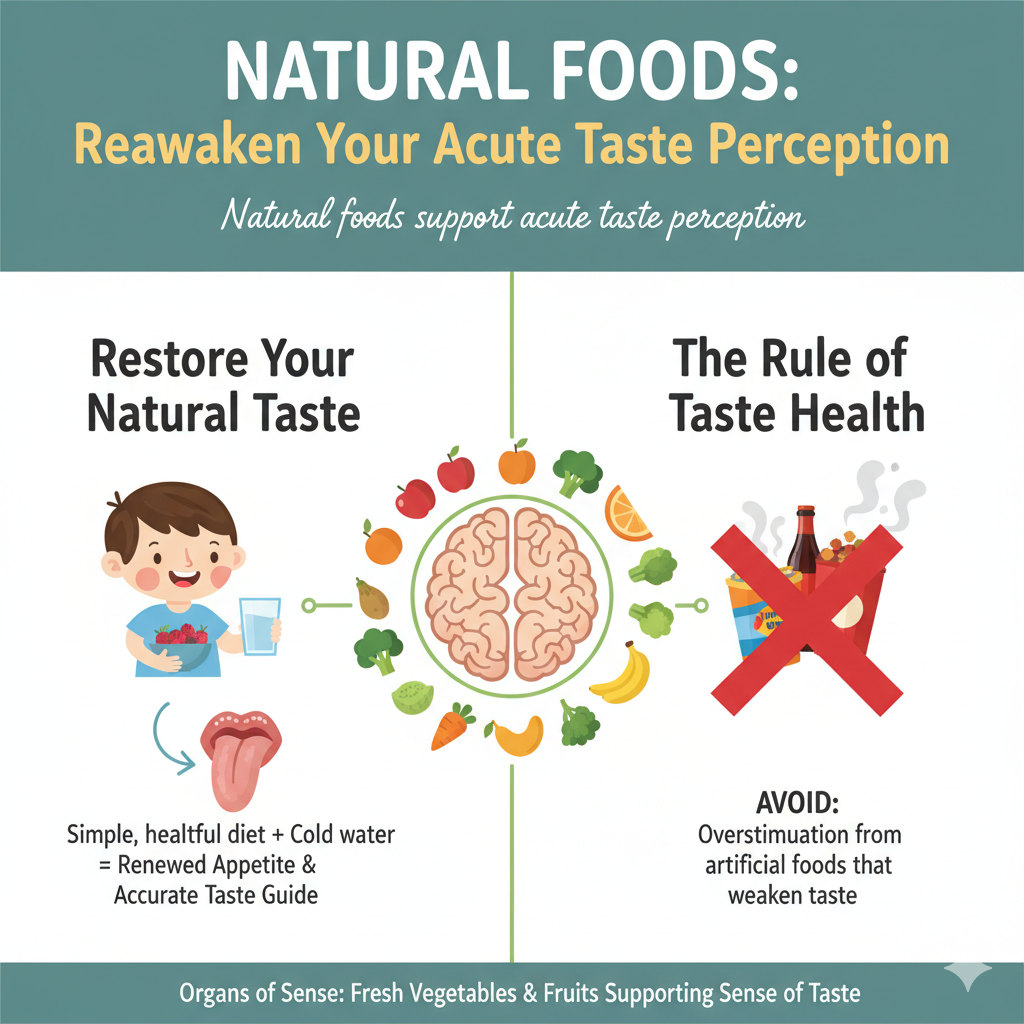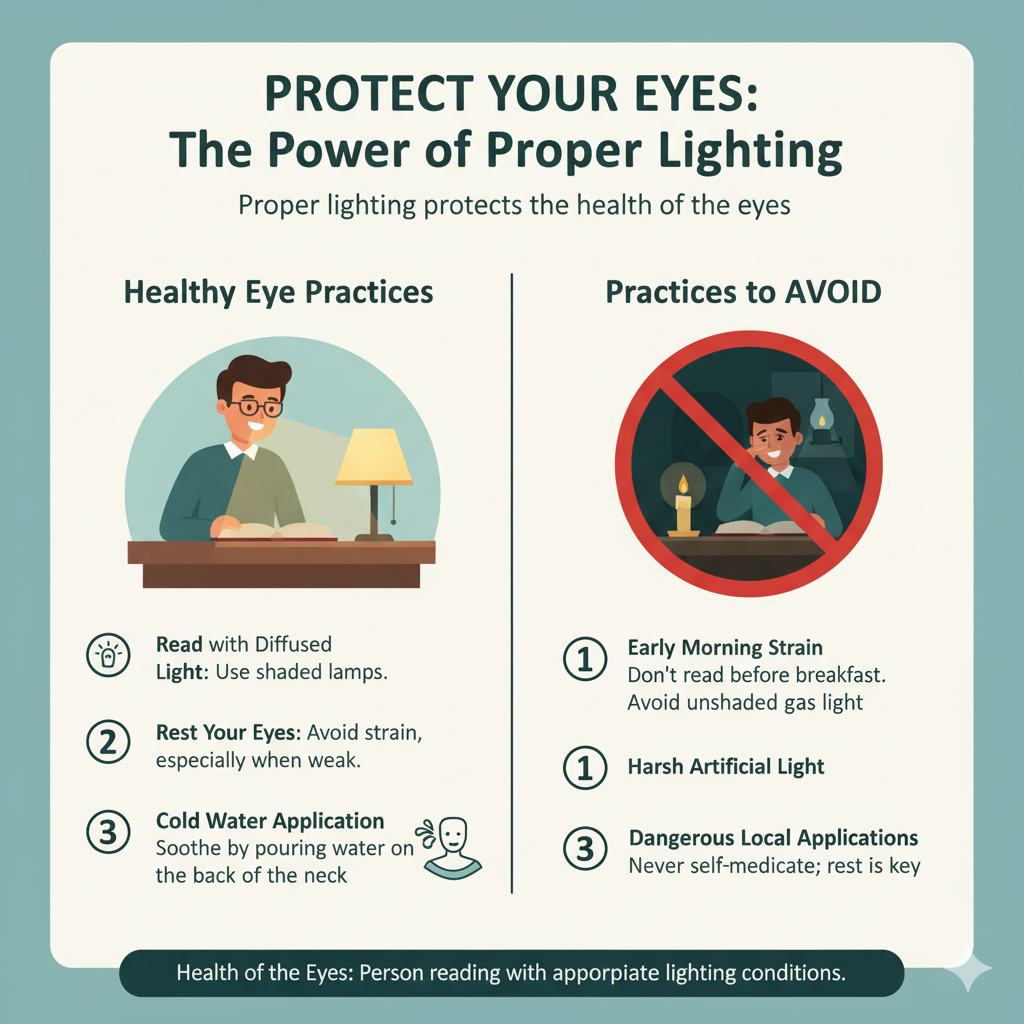Laws of Health for the Organs of Sense: How to Protect Your Eyes, Ears, Taste, and Smell Naturally
The organs of sense—taste, smell, sight, hearing, and the skin’s network of sensation—are essential to both daily function and whole-body health. These sensory systems require proper care and protection to maintain their function throughout life. This guide explains simple, evidence-based laws of health for the organs of sense: what damages them, how to protect them, and practical daily rules to restore and preserve sensory health.
Understanding how to care for your organs of sense begins with recognizing their dependence on proper nutrition, adequate rest, and protection from overstimulation. Each sensory system responds to specific health practices that either strengthen or weaken its function over time.
Why the Organs of Sense Matter to Whole-Body Health
Your sensory organs serve as vital communication channels between your environment and your nervous system. When properly maintained, these organs provide accurate information that guides daily decisions about food, safety, and environmental conditions. Conversely, damaged or dulled senses compromise your ability to detect hazards, enjoy nourishment, and maintain optimal wellness.
The interconnected nature of sensory health means that practices benefiting one sense often support others. Proper circulation, clean skin, adequate hydration, and balanced nutrition create conditions where all organs of sense can thrive.
Organ of Touch: The Skin & Dominant Cutaneous Nerves
The chief organ representing the sense of touch consists of the extensive network of nerves of sensation distributed throughout the skin. The primary cutaneous sensory supply is carried by major nerve branches such as the trigeminal nerve (face), radial cutaneous nerves (arm), and the saphenous and sural branches in the limbs—dermatome maps show how these major nerves distribute sensation across the skin.
The health of these nerves depends mainly on four essential factors:
First, the blood must be well oxidized in the lungs through regular breathing and physical activity. Next, the blood must be made by nourishing nutrition that provides simple and proper food without excessive processing or artificial additives. Third, the skin must be kept clean, with its capillaries well filled with blood through adequate circulation. Lastly, the nerves of motion and sensation, which are intimately connected, must be kept healthy through regular exercise that stimulates both systems.
Daily bathing, appropriate clothing for weather conditions, and movement that promotes circulation all contribute to maintaining the health of cutaneous sensory nerves.
Sense of Taste — Rules and Why Strong Flavors Cause Tears
In childhood, the sense of taste remains remarkably acute, with children naturally preferring food of mild and delicate flavor. The first use of pepper, vinegar, and similar condiments usually brings tears into the eyes—a response that signals the body’s protective mechanisms activating.
According to NCBI research on trigeminal chemoreception, irritants such as pepper (capsaicin) and acetic acid (vinegar) can trigger trigeminal chemosensory and nociceptor pathways, producing a lacrimation reflex and local tearing as the nerve endings react to chemical irritation. This physiological response demonstrates how the body attempts to flush away potentially harmful substances through tear production.
However, the use of condiments and stimulating drinks exhausts and dulls this sense over time, creating a false appetite and continence pattern that craves unhealthful and mixed articles of diet. The use of tobacco further lessens the sensibility of taste and awakens an unnatural longing for stimulus, as detailed in research on the health effects of tobacco on our blog.

The simple and natural sense of taste characteristic of childhood can be restored by drinking nothing but cold water and maintaining a perfectly simple and healthful diet. When this approach is secured, the appetite becomes healthful and serves as a safe guide to the proper quantity of food.
The rule of health for the sense of taste: Avoid every article that tends to debilitate this sense through overstimulation.
Sense of Smell — Snuff, Stimulation & Nasal Health
This sense maintains its health and acuity through proper use, but excesses in stimulation diminish its sensibility significantly. Snuff represents the greatest enemy of this sense, as it diminishes nervous sensibility and thickens the membrane lining the nose to obstruct the passage of air through it.
Long-term use of nasal snuff is associated with chronic rhinitis and mucosal changes that can lead to nasal obstruction and reduced olfactory function. The thickened nasal membranes not only block airflow but also create a barrier that prevents odor molecules from reaching olfactory receptors effectively. This damage often affects both voice quality and breathing mode, creating secondary health complications.
The rule of health for this sense: Avoid all excessive stimulation that overwhelms or damages the delicate nasal membranes.
Sense of Sight — Avoiding Overstimulation & Phototoxic Injury
The organ of sight, like all others, can be debilitated by overaction. The eye may become inflamed by too much light or weakened by excessive use, particularly in those with naturally delicate organization.
First rule: Avoid excess of light and excess in using the eye. Always stop when the eye feels pained or tired, as these signals indicate stress to the visual system.
The iris contracts when too much light enters the eye, but this process occurs gradually. Sudden changes from darkness to light injure the nerve through excess of stimulation. Sudden or intense light exposure can cause photic injury to the retina (photic retinopathy) and temporary vision loss; severe photochemical retinal damage can produce macular dysfunction even without direct trauma to the optic nerve. This condition, historically called amaurosis, results from overwhelming the eye’s adaptive capacity.
Second rule: Avoid all sudden changes from darkness to light.
When objects are placed too close to the eye for prolonged periods, this produces shortness of sight (myopia). If objects are viewed for extended times obliquely, it strains the muscles of the eye and sometimes produces squinting.
Third rule: Take care that the eye is not injured by inspection/visualization that is either too close or oblique.
Special Considerations for Health of the Eyes
When the eyes are weak, two practices prove especially injurious: using them early in the morning before breakfast, and using them by candlelight. Gas lights, which produce very strong illumination, should always be shaded for weak eyes. Local applications for weak eyes are dangerous and should be avoided—rest and protection from light serve as the best remedies. Pouring cold water on the back of the neck provides a safe and often effective application.

Current ophthalmology guidance finds that wearing an appropriate prescription does not “weaken” the eyes; properly corrected vision does not cause progressive decline—uncorrected refractive error and excessive near work visua are more relevant drivers of myopia progression. This evidence contradicts the common misconception that glasses make eyes dependent or weaker over time.
Sense of Hearing — Safe Ear Care & Wax Removal
The ear represents a very delicate organ whose full characteristics is not fully understood even by modern medicine. Therefore, preserving it from injury and avoiding experimental treatments remains critically important.
Deafness is sometimes caused by an accumulation of wax in the ear. Using hard objects or cotton swabs can push wax deeper, cause impaction, eardrum perforation, or canal injury; safer initial steps are softening drops (olive oil) and, if needed, gentle irrigation by a clinician. The cleaning of the ear with pin heads or any hard object is particularly dangerous, as the ear canal’s delicate skin and the tympanic membrane can be easily damaged.
A drop of oil in the ear will soften any hard wax, and then gently syringing the interior with tepid water will remove the excess. If this method does not provide relief, recourse should be had to a physician competent with the tools and skills.
Practical Daily Rules for Protecting Your Organs of Sense
Apply these evidence-based guidelines to maintain sensory health:
- For touch: Keep skin clean, exercise regularly, maintain proper circulation through movement and appropriate clothing
- For taste: Eliminate condiments and stimulants, consume simple whole foods, drink pure water
- For smell: Avoid nasal irritants, refrain from snuff and harsh chemicals, breathe clean air
- For sight: Use adequate lighting, take regular breaks, avoid sudden light changes, wear corrective lenses if prescribed
- For hearing: Never insert hard objects into ears, use olive oil for wax softening, seek professional help for persistent issues
FAQ
What rules are given to weak eyes?
For weak eyes, avoid using them early in the morning before breakfast and by candlelight. Shield eyes from strong gas lights, avoid local applications, and use rest and protection from light as primary remedies. Pouring cold water on the back of the neck can provide safe relief. The health of the eyes improves with proper corrective lenses when needed.
How is deafness sometimes caused?
Deafness sometimes results from an accumulation of wax in the ear that blocks sound transmission. Using hard methods or objects to extract wax can push it deeper, cause impaction, perforate the eardrum, or injure the canal. Safe softening with olive oil followed by gentle irrigation provides effective removal.
What effect does snuff have on the sense of smell?
Snuff diminishes nervous sensibility and thickens the membrane lining the nose, obstructing air passage. Long-term use leads to chronic rhinitis and mucosal changes that reduce olfactory function and can affect voice quality and breathing patterns.
How can a simple and natural taste be restored?
A simple and natural sense of taste can be restored by drinking only cold water and maintaining a perfectly simple and healthful diet free from condiments and stimulants. This practice allows taste receptors to recover their natural sensitivity and creates healthful appetite patterns.
What are the ways in which the organ of sight can be injured by excess?
The organ of sight can be injured by excessive light exposure, which inflames tissues, and by excessive use, which debilitates the visual system. Sudden light changes can cause photic injury, while prolonged close work or oblique viewing strains muscles and nerves.
What is the effect of excessive stimulation of the organs of sense?
Excessive stimulation dulls sensory acuity across all systems. For taste, it creates false appetite; for smell, it reduces sensitivity; for sight, it causes inflammation and potential nerve damage; for hearing, it can lead to permanent threshold shifts and tinnitus.
